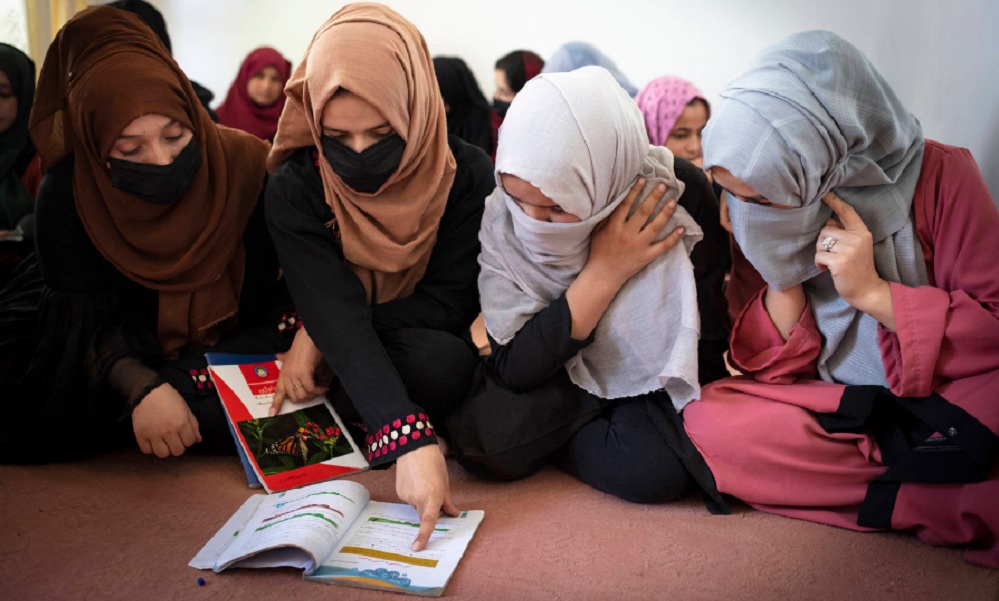Latest News
Afghanistan ranks last in global index on women’s status

Afghanistan ranks worst of 177 countries in terms of the status of women, according to this year’s Women, Peace and Security (WPS) index released Tuesday in New York.
The WPS Index is published by Georgetown University’s Institute for Women, Peace and Security (GIWPS) and the Centre on Gender, Peace and Security at the Peace Research Institute Oslo (PRIO).
It draws on recognized data sources to measure women’s inclusion, justice and security in 177 countries. The WPS Index uses 13 indicators to measure women’s status, ranging from education and employment to laws and organized violence, PRIO said.
Denmark leads the 2023 rankings as the top country to be a woman, scoring more than three times higher than Afghanistan at the bottom. Yemen ranks second lowest and the Central African Republic is third in the global listing.
The United States ranks 37th this year, scoring similarly to Slovenia, Bulgaria and Taiwan in the second quintile.
“Since 2021, Afghanistan has ranked the worst in the world to be a woman. Afghan women wake up each day to no jobs, no education and no autonomy over their lives. This report should serve as a wakeup call to world leaders that all Afghanistan’s women are imprisoned,” said Torunn L. Tryggestad, Director of the Peace Research Institute Oslo’s Centre for Gender, Peace and Security.
This comes as the Islamic Emirate of Afghanistan (IEA) has repeatedly said that it is committed to ensuring women’s rights according to Sharia.
Latest News
Continued aid to Afghanistan vital for regional security: Kazakh president

Kazakhstan’s President Kassym-Jomart Tokayev has emphasized the continuation of humanitarian assistance to Afghanistan, stating that the ongoing provision of such aid plays an important role in ensuring regional security.
Speaking at the international conference “Peace and Trust” in Ashgabat, the capital of Turkmenistan, Tokayev described addressing complex humanitarian challenges and the reconstruction of Afghanistan as a necessity.
“To ensure regional security, we consider it essential to continue providing assistance to Afghanistan, including by strengthening international efforts to address complex humanitarian issues and the reconstruction of this country. Kazakhstan remains committed to supporting the people of Afghanistan through humanitarian aid, educational projects, trade development, and food security initiatives,” he said.
Meanwhile, experts believe that sustainable improvement of the humanitarian situation in Afghanistan requires broad cooperation from the international community and support for the country’s economic development.
“Investment can be defined as one of the fundamental drivers of the economic cycle, and whenever Afghan traders do not take their money out of the country and instead invest domestically, it naturally leads to greater growth and dynamism in Afghanistan’s economy,” said Abdul Zahoor Modabber, an economic analyst.
As the humanitarian crisis in Afghanistan continues, reports by international relief organizations indicate that millions of citizens of the country are in urgent need of food, health, and livelihood assistance.
The reduction in funding for aid organizations, the impacts of climate change, and the return of migrants have increased concerns about a further deterioration of the humanitarian situation in the country.
Latest News
Islamic Emirate declines to attend Tehran meeting on Afghanistan
Latest News
Sirajuddin Haqqani: A government that intimidates its people is not a true government

Khalifa Sirajuddin Haqqani, Minister of Interior of the Islamic Emirate of Afghanistan, said during a visit to Khost province on Friday that any government which rules through fear cannot be considered a true government.
“A government is one that is loved by its people, one that serves them with respect and compassion, and from whose behavior people learn ethics and sincerity,” he said.
Haqqani also stressed that Afghans who opposed the Islamic Emirate in the past should be tolerated and treated in a way that helps eliminate hostility and animosity, paving the way for national cohesion.
-

 Sport4 days ago
Sport4 days agoILT20: Desert Vipers edge Gulf Giants in historic super over thriller
-

 Latest News2 days ago
Latest News2 days agoMuttaqi: Afghanistan’s progress requires both religious and modern education
-

 Regional4 days ago
Regional4 days agoSix Pakistani soldiers killed in TTP attack in Kurram District
-

 Business4 days ago
Business4 days agoTrade bodies warn almost 11,000 Afghan transit containers stuck at Karachi port
-

 World4 days ago
World4 days agoPowerful 7.6 earthquake hits northern Japan, tsunami warnings issued
-

 Latest News3 days ago
Latest News3 days agoTrump calls Afghanistan a ‘hellhole’ country as US expands immigration restrictions
-

 Sport5 days ago
Sport5 days agoSorkh Poshan Khafi defeats Sarsabz Yashlar 4-0 in Afghanistan Champions League
-

 Sport3 days ago
Sport3 days agoCommanding wins for Arman FC and Sarsabz Yashlar in Afghanistan Champions League

























